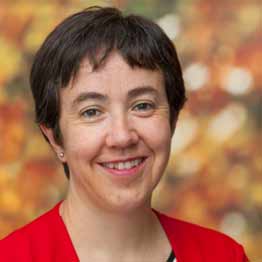PAL-CYCLES
Palliative care support for the well-being of the cancer patient.
ATLANTES Global Observatory of Palliative Care
Many patients with advanced cancer at the end of life leave hospital without information and certainty about the treatment and care they will receive thereafter. Communication between health care providers in different settings is often not optimal, resulting in a lack of continuity and coordination of patient care. This status negatively affects their quality of life and increases the number of preventable hospitalisations issue .
The PAL-CYCLES programme aims to offer a solution: it is a transitional palliative care programme for advanced cancer patients, adaptable to local cultures and healthcare systems.
The main goal of this project is to develop, implement and evaluate a novel transitional palliative care programme for cancer patients through an intervention that facilitates a smooth transition from hospital to community care in the last months of life.
1. Adaptation of the transitional goal cancer palliative careprogramme for advanced cancer patients with the aim of implementing it in the seven European countries included in project.
2. training of oncologists, general practitioners and hospital and home care nurses to identify patients with palliative care needs. Collaborative and comprehensive plans are sought from management, providing patient-centred communication about discharge planning, advance planning and end-of-life care.
3. A clinical essay with a staggered design will be implemented in fourteen services in seven European countries.
4. A support programme will guide the implementation of the clinical essay in all services and reveal barriers and opportunities for implementation. It will also offer customised solutions where necessary.
5. An ethics study will investigate ethical and human issues surrounding home discharge (such as false hope, patient anxiety, family stress).
6. Dissemination of the results of project will be carried out through scientific publications, a final symposium, 6 national workshops and 1 European workshop. Local and European recommendations on policies and professional guidelines (e.g. pain and symptom management, wider implementation) will be formulated based on the results of project.
(1) identification at discharge of a patient with palliative and supportive care needs at partnership with the oncologist and the hospital palliative care team;
(2) speechcompassionate towards the patient and family;
(3) a collaborative multidimensional care plan and follow-up in the home care setting;
(4) assessmentregular care plan with patients and relatives;
(5) identification of the terminal phase (if any) based on regular assessments, with appropriate intensification of care and end-of-life discussions according to local possibilities and habits, including enquirywith the patient and family on ethically and legally sensitive issues.

We aim to develop, adapt, implement and evaluate the PAL-CYCLES programme in seven European countries using a staged randomised clinical design of essay . The experiences of patients, families and healthcare professionals, as well as ethical and equity issues, will be addressed using qualitative methods.
The PAL-CYCLES programme will facilitate patient-centred communication and continuity of palliative care for the advanced cancer patient in the community care setting, reducing unplanned hospital admissions and improving the quality of life of these patients in the last stages of their disease.
 Main researcher
Main researcher
María Arantzamendi
marantz@unav.es
ATLANTES Global Observatory of Palliative Care
Partners
→Stichting Radboud Universitair Medisch Centrum (Project Leader)
→ Universitatsklinikum Bonn
→ University of Lancaster
→ Pecsi Tudomanyegyetem - University of Pecs
→ Uniwersytet Zielonogorski
→ Hospice Casa Sperantei
→ European Association of Palliative Care
→ Universidade Católica Portuguesa
→ European Cancer Patient Coalition



